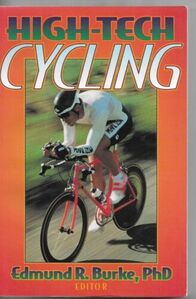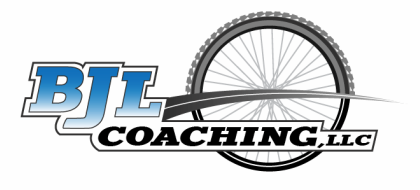 This is a great article written by one of the giants in a scientific approach to endurance training, Doctor Edmund Burke. I first came across Dr. Burke with his High-Tech Cycling as pictured here. Since then I have learned much from his books and other literature, and indirectly through his influence in the sport. He is surely missed but his works live on. Keep these key concepts of:
Check out what Dr. Burke has to say and let me know your thoughts, questions, or comments below. What’s your goal for 2023? Ride on! Coach Brian Starting the Year Off Right By Edmund R. Burke, Ph.D. Active.com Most of you could ride almost as well as Miguel Martinez or Alison Dunlap. You probably couldn't ride their times or beat them in a race, but if properly trained, you could approach your potential as they have theirs. While we each have different genetic gifts for off-road cycling, most of us have the ability to fully realize our promise if we go about our training with intelligence and restraint. Whether you choose to try and maximize your talent or simply to obtain the greatest possible fitness benefits from your riding, the results will depend largely on how you train. As we begin the New Year, let's explore some of the key concepts used by many great athletes in designing their overall training program for the year. Much of what separates the good cyclist from the back-of-the-pack cyclist is their individuality, consistency, slow progression, fulfillment and goal-selection concepts from which we can all benefit.
Individuality First, you must plan your training to your needs, abilities and routines. While we must listen to the training programs of elite riders, read books and articles on training, you must know your strengths and weaknesses. What is good for Steve Larson, the 1998 and 2000 NORBA cross-country national champion, may not be good for you. The smart cyclist listens to everyone and then selects what is best for his or her training. In addition, you must also train your weaknesses: if you are a poor climber, make sure to spend time on climbing technique and building anaerobic power, so you climb better in your first race of the season. Too often, we train at what we are good at already, and neglect our weaknesses. By strengthening your weaknesses, you will become a better all-around cyclist. Consistency It is more important to do less more often than to do more less often. When in doubt about a ride, the choice that will improve consistency is to be conservative. Often it is better to do less than more. You'll probably avoid the three major reasons most athletes spend time away from training: injury, illness and lack of motivation. Ned Overend, a multiple national champion, has attributed much of his success to his ability to race less, train consistently and take a few days off his bicycle every few weeks. He also pointed out the need to monitor his state of health and fitness during a long, hard season, which lasts from early March to late September. Slow Progression Along with a consistency in your training, there should be a progression in training volume and intensity that taxes your body enough to improve it, but not enough to cause it to break down. Again, if in doubt, be conservative. You'll get there. Whether your goal is to climb faster as soon as possible or to finish in the top 10 at the national championships, the season is long and you need to build to a peak during the months of July and August, and not in April. A champion's path to end-of-the-season success shows that the shortest path may be the one that appears the longest and slowest. The cyclists that were flying in March were not necessarily the ones with strong legs when the season was winding down in September. Fulfillment This can be defined as a challenge or goal you enjoy working toward, while feeling good about yourself and what you are doing. You need this to psychologically stay with any endeavor. However, if you demand too much of yourself too often, your body (especially your immune and endocrine systems) will be unable to respond to the requests you put upon it. You will be more susceptible to injury and illness, and you may even find yourself dissatisfied with cycling. Goal Selection Your goal should be a major race or race series of the season. Your goal could be finishing in the top five in the Colorado Off-Road Points Series or placing in the top five in 10 races this season, but it could also be the fulfillment of other cycling aspirations. If in doubt about some matter regarding your training, racing, commitment or equipment selection, the question you must ask yourself is, "How will this decision affect my goal?" Whatever enhances the accomplishment of that goal and doesn't interfere with consistency is probably the best answer. Though few of you have all the time you'd like to devote to mountain biking, you still take it seriously and every once in a while seek to test yourself as a cyclist. Following the above ideas and suggestions will give you a sound and proven methods for better performance in the upcoming season. Dr. Edmund R. Burke was among the pioneers in applying scientific principles to endurance sports training, especially cycling. As an exercise physiologist, he was responsible for several advances in sports drink formulation and almost single-handedly developed the subcategory of performance recovery drinks. A former director of the Center for Science, Medicine and Technology at the U.S. Cycling Federation in Colorado Springs, he worked with the U.S. Olympic cycling team during the 1980 and '84 Games. Dr. Burke is the author of 17 books on fitness, training and physiology, including the best-selling Optimal Muscle Recovery.
0 Comments
Your comment will be posted after it is approved.
Leave a Reply. |
Categories
All
Coach B.L.Coach B.L. is the head coach at BJL Coaching and an avid racer and cycling enthusiast himself. Archives
July 2024
|

 RSS Feed
RSS Feed